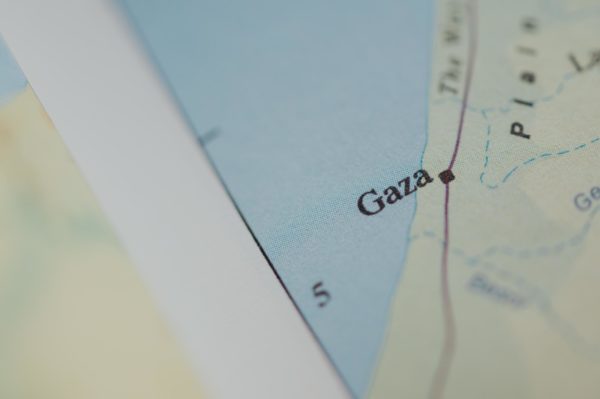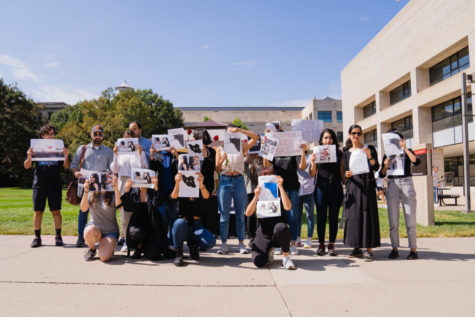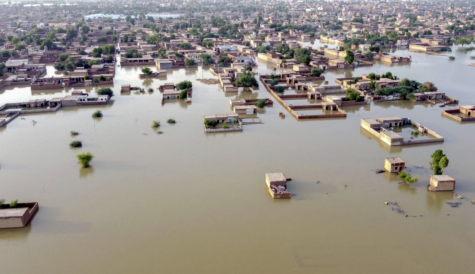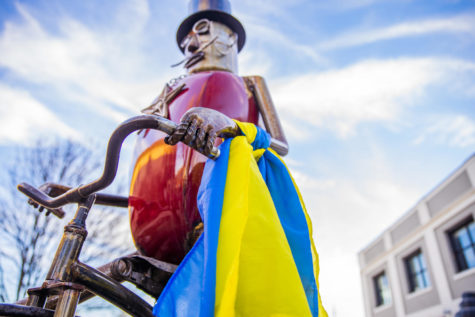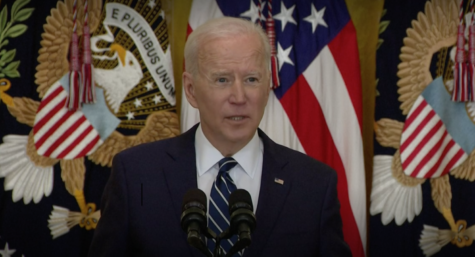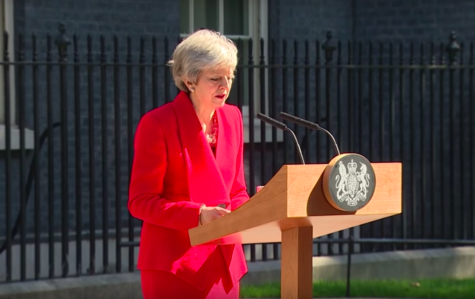Syrian rebels pound military airport
August 2, 2012
Growing in numbers and clout, Syrian rebels battered a military airport near Aleppo as the battle for the nation’s most populous city raged Thursday.
“Menagh military airport sustained shelling on Thursday morning from tanks taken by rebels in previous operations,” the Syrian Observatory for Human Rights said of the base north of Aleppo. The observatory is a Syrian opposition group, and Aleppo is Syria’s commercial capital.
The main military airfield in the region is southeast of the city. In other incidents, regime warplanes shelled the western and northern parts of the city, the opposition Local Coordination Committees of Syria said.
Rebels are now equipped with heavy weaponry, including tanks, the United Nations said, a sign that the armed resistance to President Bashar al-Assad’s regime is gaining military potency.
Shelling and clashes have raged across the city for days, prompting many thousands of people to flee their homes. Both rebels and government forces are placing great importance on gaining control of the metropolis.
Electronic communications, such as cellular networks, landline phones and Internet services, were cut off Wednesday night, activists told CNN. They said the cutoff is part of a regime plan before the government kicks off a full-scale attack.
“The regime is trying to prevent pictures of his crimes from reaching the media,” said Abu Hisham, an activist from Aleppo. Another said activists can’t communicate with one another and can’t discern what’s happening in certain neighborhoods.
Syrian state TV said soldiers “have been able to eliminate scores of terrorists and mercenaries” in Aleppo and claim to be sweeping through the city’s Salaheddine neighborhood and towns west of Aleppo.
The fighting comes amid international diplomacy and stepped-up U.S. help for the emboldened rebel forces, dominated by military defectors who have streamed into the opposition’s arms for months.
U.S. Defense Secretary Leon Panetta discussed the Syrian crisis Thursday with Jordan’s King Abdullah in Amman, a meeting that Panetta spokesman George Little described as “excellent.”
They discussed the Syrian refugee flight to Jordan, international pressure on the Assad regime, humanitarian aid and prospects for political transition.
Russian President Vladimir Putin and English Prime Minister David Cameron discussed Syria on Thursday in Britain. Russia, a longtime friend of the al-Assad regime, has blocked tough U.N. Security Council action against the regime.
Putin said that “some things we see eye to eye on, and we have agreed to work together on those things.” Cameron said that “both Russia and the UK want progress towards a stable Syria.”
This comes a day after U.S. officials told CNN that President Barack Obama had signed a covert directive authorizing U.S. support for Syrian rebels. The secret order, referred to as an intelligence “finding,” allows for clandestine support by the CIA and other agencies.
Syrian state TV reacted to American news reporting about the directive, saying Obama signed “secret documents” to “support terrorists.”
The Obama administration had said it would step up its assistance to the opposition after last month’s failure by the U.N. Security Council to agree on tougher sanctions against the Assad regime.
Exactly what type of support the finding authorizes is also unclear. The Obama administration has ruled out arming the rebels for now, providing only nonlethal assistance, such as communications equipment. It has resisted providing weaponry, in part because U.S. officials don’t know enough about the rebels.
U.S. officials have told CNN that Washington is cooperating with countries that are arming the rebels, including Saudi Arabia and Qatar, to help find groups worthy of aid. Diplomatic sources have also said the United States is providing intelligence on Syrian troop movements, which is then passed to rebel groups.
Anti-Assad fighters and government forces have clashed in other places across Syria, and the government has staged offensives. At least 41 people have been killed Thursday in Syria, including 18 people in Damascus and its suburbs and 10 each in Hama and Daraa provinces, the LCC said.
Opposition groups have reported another regime “massacre.”
The LCC on Wednesday reported the deaths of up to 50 people in the Damascus suburban town of Jdeidet Artouz. The Syrian Observatory for Human Rights said regime forces staged house-to-house raids, conducted executions, and used heavy gunfire and rocket fire.
The state-run Syrian Arab News Agency said Syrian soldiers in the town had been chasing down “armed groups” and “terrorists.” The agency said many of the people were killed and injured, and others surrendered.
The fighting has devastated the Syrian economy and left many people in dire straits. As many as 3 million Syrians will need food in the next 12 months as farmers in the conflict-ravaged nation lose assets and livestock, the United Nations said in a report Thursday.
The Syrian agricultural sector has suffered $1.8 billion in losses this year, including crops, livestock and irrigation systems, according to the report.
The report is the result of an assessment conducted in June by the Syrian government, the World Food Programme and the U.N. Food and Agriculture Organization.
Farmers have been forced to abandon their crops because of a lack of labor, power cuts, a rise in fuel costs and insecurity, the report said.
As the violence rages, farmers have postponed wheat harvesting in troubled areas such as rural Damascus, Homs and Hama.
The World Food Programme said it is crucial to gain access to those badly affected.
“While the economic implications of these losses are quite grave, the humanitarian implications are far more pressing,” said Muhannad Hadi, the World Food Programme representative in Syria.
“The effects of these major losses are first, and most viciously, felt by the poorest in the country. Most of the vulnerable families the mission visited reported less income and more expenditure.”
The LCC reported Thursday that regime soldiers in the Morek region of Hama were firing at farmers to prevent them from harvesting tree crops.
CNN cannot independently confirm reports of violence in Syria because the government has limited access by international journalists.
On Thursday, Herve Ladsous, under-secretary-general for peacekeeping operations for the U.N., is expected to report to the Security Council on the U.N. Supervision Mission in Syria, whose mandate to monitor a peace plan was renewed last month for 30 days.
The Syrian crisis started when al-Assad’s security forces launched a violent crackdown on peaceful protests in March 2011. That clampdown spurred a nationwide uprising as armed rebels, including military defectors and other fighters, battled under the Free Syrian Army.
The conflict has claimed roughly 17,000 lives, U.N. Secretary-General Ban Ki-moon said last week. Opposition activists put the toll at more than 20,000.
— CNN’s Salma Abdelaziz, Mohammed Jamjoom, Elise Labott, Faith Karimi, Joe Sterling, Hamdi Alkhshali, Brian Walker and Matthew Chance contributed to this report.






